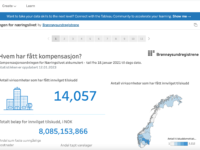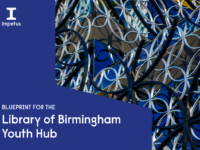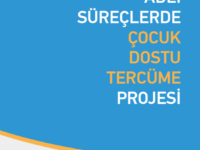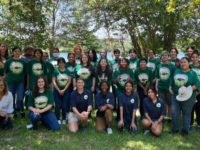The digital compensation scheme was created to support Norwegian businesses to endure the financial consequences of the Covid-19 pandemic. The scheme designed was quick, efficient, and can be relaunched when needed. Checks are done before the disbursement, which minimizes the need for verification afterwards and also prevents misconduct. Applications are approved by an auditor, and then automatically processed and checked against information from a variety of sources and registers. Information…
Innovation Tag: Methods
The Disciplinary Maturity Model (CRG-MM) is a pioneer model in Brazil and is an operational and strategic tool aimed to evaluating and improving the management of disciplinary activity, through the definition of quality standards based on management and public governance procedures. This innovation seeks to provide greater stability and security to executors and managers of disciplinary activity, considering its role as a public integrity instance in the fight against corruption.
The UK government launched a new “youth hub” offer of employment services to young people affected by the disruption of the covid-19 pandemic. Through four days of workshops with key stakeholders, which included engaging young people, Impetus ran a theory of change process to enable one of the flagship hubs to co-design their new service to best serve young people. This is the first time that Impetus has applied its theory of change tools, and its impact focus to a government policy…
Case Study
School-Effect Indicator: An analysis of schools, using artificial intelligence, according to the…
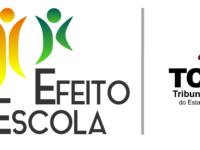
The São Paulo State Court of Auditors built a new analysis methodology, the School-Effect Indicator (IEE), which includes factors such as the socioeconomic status of students in the evaluation of school effectiveness. Through Artificial Intelligence (AI), it is calculated how much the school has contributed to the competence of its students, highlighting the principle of equity, recognizing the needs of each school group and working to reduce the impact of differences.
The project is aimed to prevent the loss of the rights of refugee children in Türkiye due to language and translation difficulties in judicial processes. Children involved in judicial processes, translators, judges-prosecutors and other auxiliary judicial staff have benefited very much from the project. For the first time, the capacity of translators has been strengthened and the secondary trauma risks of children have been mimized.
The AJSC has developed a new model to measure the determinants of the ‘quality of life’ in Ajman, covering six key areas of public service. The Model comprises a comprehensive factor measurement framework embedded on a sophisticated web-based application, with inbuilt protocols for scientific data collection, project management, data visualization and reporting. It systematically measures gaps and impact of interventions, via targeted performance assessment of framework factors.
Case Study
Tertius – An online construction marketplace that easily connects property developers with…
Tertius has resulted in massive productivity gains for the building industry in DC, enabling developers & property owners to book (at a nominal cost) certified third party agency inspections. Outcome: Far more efficient matching of demand & supply for permit inspections, substantially reducing turnaround times. Tertius has driven revenue to the taxpayers, increased regulatory oversight, increased safety in the building community, saving property owners and developers thousands of dollars.
In 2021 Statistics Canada, Canada’s national statistical agency, successfully implemented a new strategy for coding write-in responses to questions asked on the Census of population. Fasttext, a natural language processing algorithm, was applied to 31 questions and approximately 7 million write-in responses that would have in the past been completed by human coders. This innovation significantly increased the coding efficiency by decreasing the time and cost required to code the 2021 Census.
Impact Canada Challenges have incentivized innovative solutions in the areas of climate action, housing, food, and health. A quasi-experimental impact assessment approach uses tax data (available in most countries) to assess the effectiveness of Challenges by profiling Challenge participants and comparing business performance indicators of Challenge participants vs. non-participants. Requiring only the participant’s business number, this is a no burden, comparative, long-term measurement plan.
The Austin Civilian Conservation Corps (ACCC) began as a pandemic response program to help residents earn income and access green careers, and has evolved into a leading model for equitable, climate-focused workforce development. The ACCC, a collaboration with 10+ City departments and multiple community partners, has provided over 125 living-wage opportunities with supportive services, training, and career pathways for Austin’s underserved residents, and is actively shaping the green economy.

